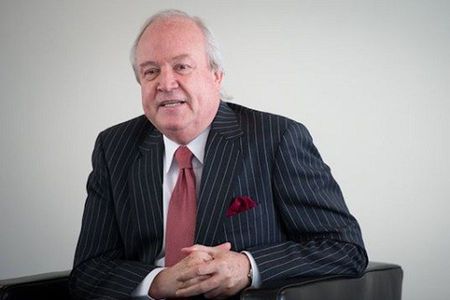Heine Discusses Global Economic Fallout from US Tariffs on CGTN’s “The Heat”

Professor Jorge Heine, Research Professor at Boston University’s Frederick S. Pardee School of Global Studies, shared his insights on CGTN America’s flagship talk show “The Heat” regarding the economic challenges posed by recent US tariffs and their impact on global trade relationships.
During the discussion on the IMF-World Bank Spring Meetings, Heine emphasized the significant uncertainty that exists today over the world economy, noting that “a system that existed for 80 years is now being replaced by something else.” He explained how countries must now make decisions to access markets with more predictability amidst rapidly changing trade policies.
When asked about whether new trade patterns might benefit certain nations like Brazil, Heine confirmed this possibility, recalling that during the first Trump administration, China’s retaliatory tariffs on US soybean exports “immediately diverted quite a bit of trade to Brazil,” with similar patterns likely to emerge again.
Addressing concerns about Latin American economic prospects, Heine noted that according to recent projections, “Latin America will be the region with the lowest growth this year and the coming year from all regions in the world.” He pointed out that the region is still struggling to recover from the pandemic’s impact, when “GDP in 2020 for Latin America fell by 6.6% when the world economy contracted by only 3.3%.”
Regarding potential solutions, Heine suggested that amidst the tariff conflicts, “Latin America must look for ways to get out of this rut,” with “greater trade with China and with other Asian economies” potentially offering one way forward.
When discussing the US Treasury Secretary’s comments about IMF “mission creep” and the need to refocus on core mandates rather than issues like climate change, Heine observed that similar shifts are occurring at the World Bank, where leadership has begun “changing its tune” as it adapts to the current administration’s priorities.
Other panelists on the program included Anthony Chan, former Chief Economist at JP Morgan Chase, and Yan Liang, Chair Professor in Economics at Willamette University, who addressed the broader implications of trade tensions for global economic growth and stability.
Watch the full discussion at CGTN America.